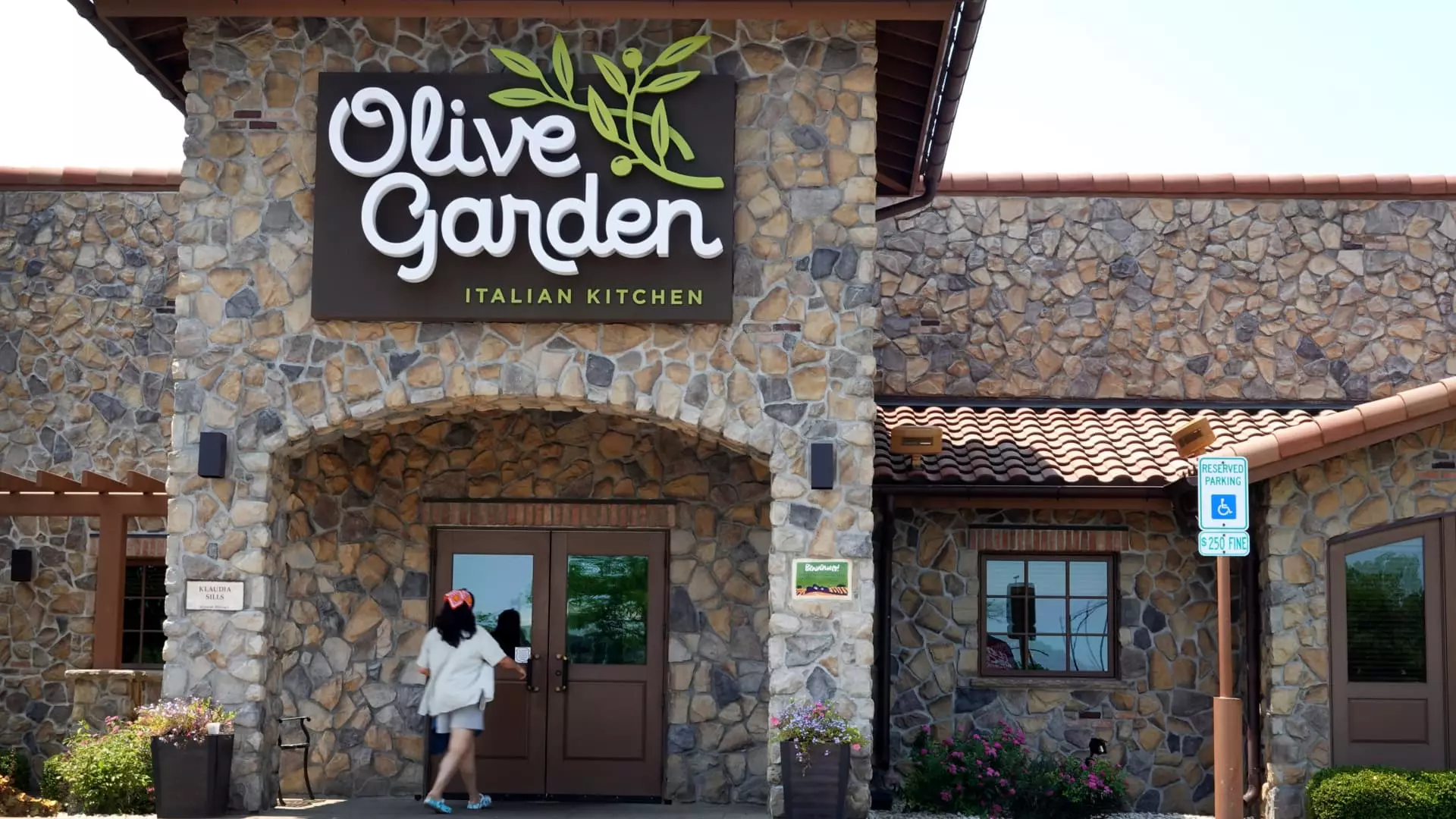Darden Restaurants, the parent company of popular dining chains such as Olive Garden and The Capital Grille, released its quarterly earnings on Thursday, revealing a less optimistic financial performance than analysts anticipated. Despite the report falling short of projections, CEO Rick Cardenas conveyed a message of resilience and commitment to long-term strategies, asserting that the company is actively responding to customer demands without sacrificing future stability. This juxtaposition of disappointing numbers with positive stock movement raises questions about investor sentiment and market reactions.
For the quarter ending August 25, Darden reported adjusted earnings per share of $1.75, which was slightly below the expected $1.83. Similarly, revenues of $2.76 billion fell short of the anticipated $2.8 billion. While net income increased slightly from $194.5 million to $207.2 million year-over-year, driven in part by an effective management of certain costs, overall sales performance raised eyebrows. Particularly concerning was the company’s same-store sales, which saw a decline of 1.1%, contradicting expectations of growth in this crucial metric.
CFO Raj Vennam noted a significant dip in traffic to Darden’s restaurants during July, hinting at the impact of external factors on customer engagement. However, elements such as Olive Garden’s same-store sales drop of 2.9%, alongside a staggering 6% decline in the fine-dining segment, pinpoint a broader struggle within the company’s core offerings.
In an effort to rejuvenate customer interest, Darden is set to reintroduce its Never Ending Pasta Bowl promotion at Olive Garden, a popular dining incentive that aims to draw back patrons during challenging financial periods. Such moves reflect a strategic pivot towards customer-centric marketing tactics designed to boost foot traffic and enhance dining experiences, especially for brands under strain.
Moreover, LongHorn Steakhouse emerged as a glimmer of hope within Darden’s portfolio, showcasing a 3.7% increase in same-store sales. This success is notable given the overall decline faced by the majority of the company’s chains. Cardenas’s commitment to continual assessment and adjustment across brands is essential as Darden seeks to balance immediate recovery strategies with maintaining a sustainable framework for growth.
Amidst these challenges, Darden maintains its annual forecasts, projecting earnings per share between $9.40 and $9.60 and net sales ranging from $11.8 billion to $11.9 billion. This steadfast outlook might provide some reassurance to stakeholders, indicating confidence in the underlying fundamentals of the business. However, the real test will be the execution of growth strategies in the face of market volatility and changing consumer dining patterns.
While Darden Restaurants is facing a tumultuous quarter filled with setbacks, the company’s proactive approach in addressing customer needs and its strategic marketing initiatives may serve as catalyst points for recovery. Whether these actions will be enough to shift the momentum in favor of Darden remains to be seen, but the focus must remain on evolving with market demands and enhancing guest experiences across its diverse restaurant portfolio.


Leave a Reply